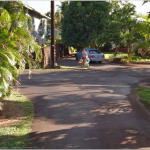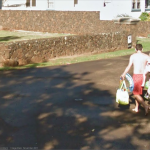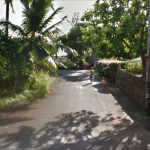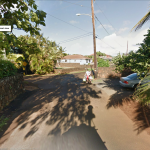My family has been working off and on on preparing an emergency plan for in case of a disaster. The primary example we’re planning around is The Big One â„¢, the giant earthquake expected to someday wipe out most of the Pacific North West. It’s easiest to think about it in that sense, partly because it’s one of the most sanitary disasters, speaking purely in the likelyhood and on whose fault it would be. Plus, you can plan around a certain set of expected problems that are likely to occur. For example, you can expect that much of downtown Portland’s century old buildings would be destroyed. You can expect that many if not all bridges would be at least temporarily closed to car and/or even foot traffic. You can expect that you may need to turn off gas and you may not have electricity. You can expect that in a 90 year old home with no connection between the house and the brick foundation, that the house will slip off. You can also expect the reaction to be similar to other earthquakes, which we’ve had several recent examples of.
When you start to think of other potential disasters, you have a very wide variety of causes, be they natural or human-precipicated, a very different set of tools to respond to the disaster, a probably most intimidating, a myriad of ways the rest of the people around you will respond. I’ve been visiting a number of urban survival and emergency preparedness resources on the internet, and I’ve noticed some common themes among the most active and vocal contributors.
- The generic label of “the disaster” is often referred to as “SHTF,” or when the Shit Hits the Fan.
- There seems to be a common perception that SHTF will be a human-caused event, likely involving the collapse of economy and or government.
- and SHTF will mean that people will try to take your stuff
This is not a new phenomenon or a new set of fears; I think it’s as old as our nation. And it seems that the response and planning by most posters follow the same rules.
- Get your guns
- Get your stuff
- Get out of Dodge
There seems to be a universal disdain for the city and the collection of resources available in them, largely because you will have to share, no, compete with other survivors for them. And there’s some unease in talking about how each individual will respond to threats to their own security. The answer seems to be answered for most folks merely by the presence of a gun or many guns solves that unknown.
But there’s still a bit of a question mark there about how you will truly respond to people. And I have a suspicion that popularity of Zombie-themed survival films and literature actually attempts to deal with the response without actually answering the underlying question. Zombie lore is very common, and in many ways, Zombie scenarios are like many disasters in which an outbreak has caused competition for resources and diminished safety. And by having the antagonist be dead, or technically undead, you remove most of the guilt of having to kill a real person to protect yourself. You can pretty guiltlessly say that you’d shoot a zombie where as you can’t quite say that about someone with avian flu.
I haven’t yet read The Zombie Survival Guide, though I understand that it deals with such an artificial zombie attack like it were any other human disaster. I’m hoping that this isn’t dealt with right away in the book, because then I’ll just look like a plagiarist. But this came to me while trying to rectify what could be real human response and what could be fictional. It would suck to think that the community response to an earthquake would be a shotgun in the face. But I sense as an overall lack of preparation for events like this by the community at large, there will be a lot of scarcity, and thus a lot of poor responses.
Oh, and I should mention that Michelle and I just discovered The Colony, which is occasionaly educational, but in many ways as fanciful as Swiss Family Robinson. (Which I still love.)





